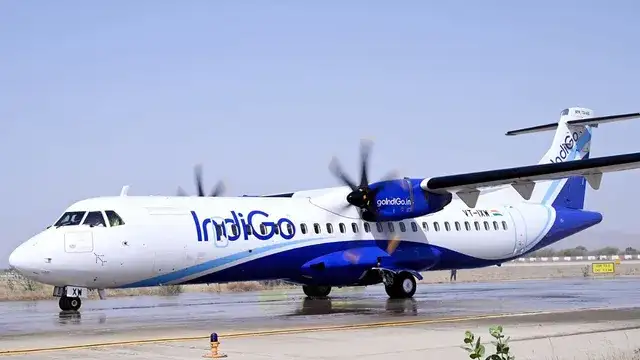Operation Sindoor flight cancellations disrupt air travel in Jammu, Srinagar, and Amritsar after India imposes airspace curbs during military strikes.

Airlines suspend services to Srinagar, Jammu, and Amritsar after airspace restrictions imposed during India’s military action under Operation Sindoor.
India’s recent cross-border military operation, Operation Sindoor, has triggered major disruptions in air travel across northern regions. Airlines halted services to cities like Jammu, Srinagar, and Amritsar after authorities imposed temporary airspace restrictions near the border.
Hundreds of passengers faced delays or cancellations as several domestic carriers adjusted their schedules in response to the security situation. The move followed a coordinated military strike targeting terror camps across the Line of Control.
Airlines Cancel Flights Without Warning
Major carriers, including IndiGo, SpiceJet, and Vistara, abruptly canceled flights to border cities. Most travelers received notifications only hours—or sometimes minutes—before departure.
“I was already at the airport when they cancelled my flight to Jammu,” said Shashank Raj, a software engineer from Bengaluru. “They only cited operational issues, without any proper explanation.”
Airlines offered affected passengers full refunds or free rescheduling. However, customer service teams struggled to manage the flood of inquiries. Many passengers couldn’t find alternative flights due to limited availability and uncertainty around resumption.
Indian Air Force Requests Airspace Restrictions
The Indian Air Force (IAF) requested temporary control over civilian airspace to carry out the military operation safely. Authorities issued Notices to Airmen (NOTAMs), suspending several flight paths over Jammu and Kashmir.
A senior official explained the rationale: “When military aircraft operate in a region, civilian routes must remain clear to prevent any accidental conflicts.”
By Tuesday morning, airport authorities had already grounded flights at Srinagar, Jammu, Leh, and Amritsar. Air Traffic Control teams in Delhi and Chandigarh redirected some aircraft, while others never took off.
Airports Increase Security Measures
Security forces ramped up vigilance at airports across northern India. Paramilitary personnel conducted more thorough baggage inspections and added extra layers of passenger screening. Travelers reported longer lines and extended wait times at checkpoints.
Some airports set up holding areas for delayed passengers as crowds grew. Airline staff also tried to manage mounting frustration from passengers who had little information about when flights would resume.
What Is Operation Sindoor?
The military named the cross-border mission Operation Sindoor, symbolizing sacrifice and courage. Officials have not released full details, but sources say the mission aimed to destroy terror launch pads and training camps in Pakistan-administered Kashmir.
Recent militant attacks in Rajouri and Poonch, which killed Indian security personnel, prompted the operation. Defense forces used precision weapons, ground troops, and aerial support to strike high-value targets.
A senior defense analyst described the action as “a strong and timely response to protect national security.” The government views the mission as part of a broader strategy to dismantle terror networks near the border.
Impact on Tourism and Local Economy
The flight cancellations hit tourism in Kashmir hard. Travelers cancelled bookings to scenic destinations like Gulmarg, Pahalgam, and Sonamarg. Local businesses, still recovering from earlier losses, faced another blow.
“This week alone, ten of my clients cancelled their Kashmir trips,” said Imran Qureshi, a travel agent based in Srinagar. “We had expected a rush during summer, but that may not happen now.”
State-run buses also reduced services in high-alert areas. Officials restricted road movement near military zones, and telecom providers slowed mobile internet in certain parts of Kashmir to prevent misinformation from spreading.
When Will Flights Resume?
So far, officials have not confirmed when they will lift airspace restrictions. Civil aviation authorities continue to coordinate with defense forces to assess the situation.
Airlines have advised travelers to check websites and social media channels for real-time updates. Meanwhile, passengers are urged to postpone non-essential travel to border areas until further notice.
National Security vs. Public Disruption
Operations like Sindoor highlight the challenge of maintaining national security while minimizing civilian inconvenience. Military actions often require urgent and confidential planning, which leaves little room for advance notice to the public.
“Security operations must take precedence, but communication channels need to work better,” said Colonel (Retd.) Ramesh Menon, a defense analyst. “Clear and timely updates could ease public anxiety during such times.”
While the armed forces continue their efforts to neutralize cross-border threats, the sudden halt in civilian air travel underscores how deeply conflict affects ordinary lives. Many passengers now hope for a quick resolution and a return to routine travel in the coming days.






